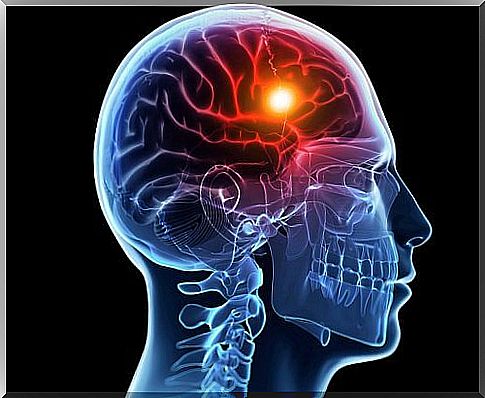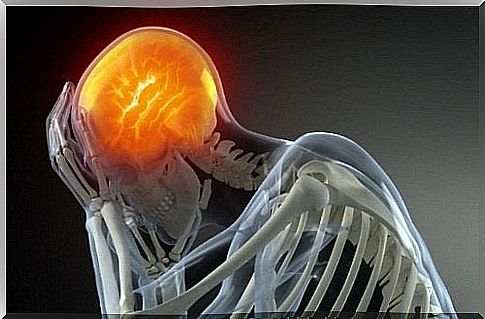Headache: When Should We Worry?

Headache is a normal thing for many of us. It is a well-known and annoying “enemy”, but most of the time it goes away on its own, without causing other complications.
However, in some cases, you do not feel any relief, even if you have taken an analgesic or rested. On the contrary, the pain is very acute.
We are talking, of course, about migraines, those chronic headaches that significantly diminish the quality of life.
So… When should a headache be a cause for concern? Could it be a symptom of a serious condition? It is a possibility that we must consider.
Given that information is the best weapon we have at our disposal, in the following we present three aspects that we all need to know.
Headache: What factors give you clues about its severity?

Harvard University has conducted a very interesting study on headaches. First, it seems that in almost 95% of cases, the headache is not a symptom of a serious illness.
However, in many situations, this pain is exhausting. In addition, it is associated with diseases such as migraines, arthritis, lupus or depression.
We know that no one dies from these diseases, but the quality of life is diminished. For this reason, these diseases are considered socially invisible.
We are certainly talking about complex realities. However, it is essential to know when a headache or migraine is not normal and signals a more serious condition.
Let’s see what are the three characteristics worth considering.
1. When to worry about headaches
Harvard University published in the aforementioned study a number of characteristics that we need to consider when we or a person close to us has a headache.
- When you feel a change in pain. For example, if until a certain point you felt an acute pain that passed after you took an analgesic, and now persists despite the treatment, you should go to the doctor.
- You need to ask for help if you are experiencing what you may call the “biggest headache of your life” (a symptom of a stroke).
- If the pain intensifies when you cough or move, it is not normal.
- It is also worrying if the headache prevents us from carrying out our daily activities.
- Some people become aggressive or irritable when they have a headache. Again, this is abnormal.
- Take action if the pain is accompanied by fever and stiff neck.
- If, in addition to pain, you have vision problems, speech difficulties, weakness, dizziness or red eyes, go to the emergency room.
- Doctors warn us that it is abnormal and that the pain suddenly appears during the night.
- If you hit your head and the pain does not go away, you should go to the emergency room immediately.
2. Headache and stroke

Undoubtedly, stroke is our biggest fear when we feel a worrying headache. Both young and old can go through something like this. Here are six warning signs that are important to keep in mind:
- Suddenly, we feel a weakness of the body on one side: an arm, a leg or a part of the face.
- As I said before, we feel like we are facing the biggest headache we have ever felt.
- We feel numbness in the face, arm or leg (on one side of the body).
- We lose sight of one eye.
- We have difficulty speaking or making ourselves understood.
- We have a feeling of dizziness, instability or loss of balance, which is common before a stroke.
“Pain of pain”

We know that migraines and tension headaches are very annoying, but neurologists and affected patients believe that the most painful is cluster-type headaches (“in clusters”).
When a person goes through something like this, he is very scared and thinks that “something very bad will happen.” However, there is nothing serious.
This is very painful and can “immobilize” us for a few hours, but, as we have already said, it is not a symptom of a serious illness.
- Cluster headaches affect 1% of the population, mainly men.
- It is an intense pain that prevents you from continuing your daily activities, can last between 15 and 90 minutes and can occur several times during a day.
- This condition is associated with certain minor problems of the hypothalamus and circadian rhythm. Sometimes, lifestyle, stress, work or lack of sleep can lead to this pain.
In conclusion, headache is in most cases a harmless symptom, associated with fatigue, stress or certain hormonal changes.
However, if the pain is an impediment to your daily activities or if it is associated with other symptoms, such as those described above, do not hesitate to see a doctor to get a correct diagnosis.
In these cases, the headache may be an alarm signal that should not be ignored.









